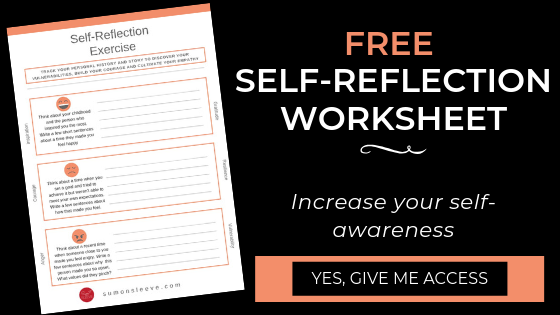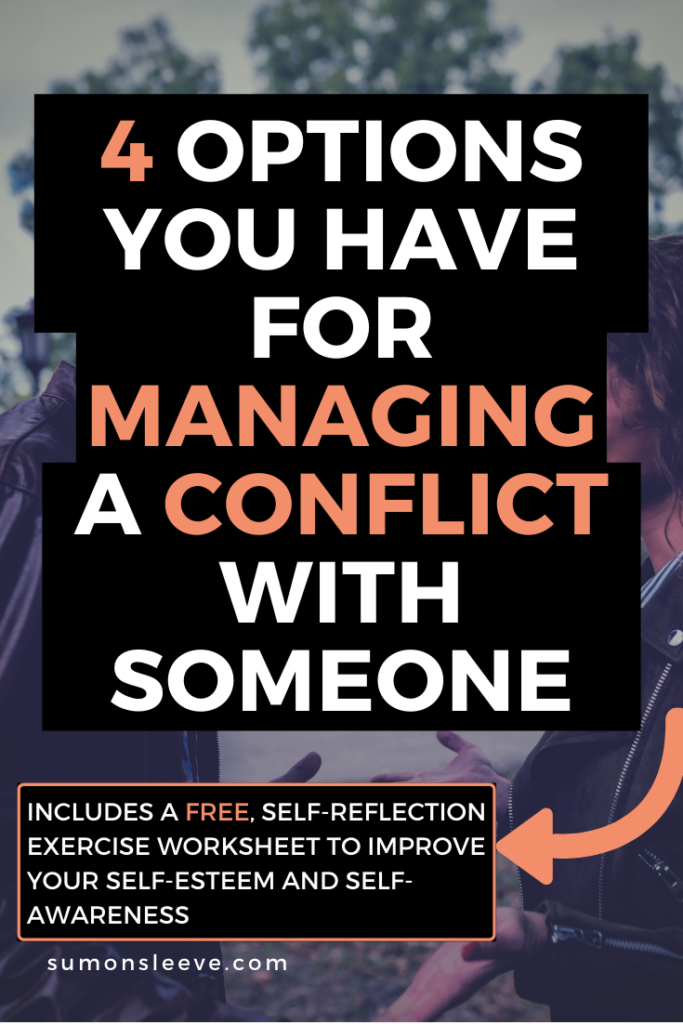
What do you do when you have an issue with someone?
Conflict is inevitable because people exist
Spouses fight. Families bicker. Co-workers disagree. Friends argue. Hell, even strangers on a bus have hissy fits with one another.
Have you ever met someone who was always in agreement with you?
His name is Brick Tamland. He loves lamps and he loves Ron Burgundy. He will agree with anything Ron says and does. He will do anything for Ron.
However, even Brick had an issue with Ron when he started dating Veronica Corningstone.
From misunderstandings, lack of communication, inaccurate assumptions, differences in opinions, values, beliefs, people will always have a conflict with one another.
Managing conflict is a skill most of us don’t want to work on
Even though we’re surrounded by people our whole lives, managing conflict is a tough skill to acquire. And it takes a lot of practice to learn and master.
Most people (including myself) would rather avoid it than to deal with it head-on. It’s easier that way.
What’s wrong with taking the path of least resistance?
Unless you’re a robot or a machine that doesn’t have emotions, avoiding conflict prevents us from developing the skills necessary to build authentic relationships, leaving us with feelings of guilt, resentment, loneliness and regret.
Imagine every time a parent disagreed with their child, they just avoided the conflict and let them do whatever they wanted? Kids become savages and the world will be run by greedy dictators, all who believe they are never wrong.
It’s mine, mine, mine…Mein Kampf!
Wait a second…isn’t that how society has evolved already?
Anyway, when it comes to conflict, sometimes the toughest part is deciding how you want to manage it.
I’ve come up with 4 options that you can choose from. The first 2 options involve the other person. The last 2 options involve only yourself.
You may start with one and end up trying another. You may end up trying all 4. It all depends on the relationship you have with the person and the issue at hand.
So here we go!
1. Fight!
Okay, so don’t actually use your fists. Choosing to fight comes down to the issue and the relationship.
Fight for the issues worth fighting for
Is the disagreement something that you can’t live with? It really bothers you, keeps you up at night and you can’t let it go. Pick your battles.
Fight for the relationships worth fighting for
Do you want to fight for this relationship? You have to see this person often and you’ll continue to resent them if you let it slide.
Try to fight in person, face-to-face
It’s getting real and raw with the other person, having that open and honest conversation, putting things on the table. Set a time and place to discuss the issue.
Don’t fight virtually over text, email, or social media. Seeing the person’s body language and facial expression, hearing the person’s tone, pitch and frequency of their voice, feeling the other person’s emotions, sensing their energy levels, all remind you that they are a human being. It helps keep things civil.
It’s very tempting to go on a texting rampage when you’re fighting with a screen.
A second-best option is to do it over video-conferencing or the phone.
Drop your ego and apologize when you know you’re wrong
When people argue, they focus on the facts of what happened, defending their sides, point after point about why they’re “right”, and accusations and assumptions about why the other person is “wrong”.
And when the argument fizzles, people don’t want to talk about their feelings, about how what was said made them feel.
If you know you’ve hurt their feelings or upset them, don’t let your ego prevent you from apologizing. Learning the art of the apology can deepen the connection you have with the other person. It’s about saying sorry in a way that’s meaningful to them.
Ask them how they want you to apologize and do it.
Some folks only need the words,
“I’m sorry.”
Some folks need the words and acknowledgement of what you did,
“I’m sorry for….”
And lastly, some folks want the words, acknowledgement of what you did and what you’re going to do about it,
“I’m sorry for….next time I’m going to try…”
Also, at the same time, self-reflect and ask yourself,
“How do you want someone to apologize to you?”
Sometimes, it’s actually harder to ask for an apology than it is to apologize.
If necessary, get a mediator involved
Maybe you can’t stand being in the same room with this person?
Or maybe the issue is so volatile that you’re afraid you’ll do something horrible to them?
Or maybe you’ve both tried to talk about the issue and it goes nowhere? You can’t seem to come to a resolution.
That’s when you need an objective person to help facilitate the discussion. This person can be a therapist, a trusted mutual friend or family member who has no history with the issue at hand, a person from the HR department, someone who has nothing to gain from the conversation.
A neutral third party can help by listening to both sides, providing structure to the conversation, enforcing ground rules, and basically playing “referee” so that it doesn’t get nasty.
Bottom line: Don’t prepare for war. Prepare for a resolution.
2. Flight
You’ve tried talking to them. You’ve involved a mediator. Apologies were exchanged. However, there still isn’t a resolution and now the issue has become chronic.
Again, ask yourself:
Is the conflict something you can live with?
Do you still value the relationship with them?
If you answered no to both of these questions, it’s time to cut ties with the person.
Let them know you can no longer be around them. End the friendship. End the relationship. Limit contact.
Formal titles (ie. your mom, your brother, your best friend etc) and/or the length of time (ie. since you were kids, over 20 years etc) you’ve known them are invalid reasons to stay in contact with them.
It’s better to have a few people in your lifeboat than to keep a sinking ship afloat.
Toxic people can change and sometimes it takes having people end relationships with them for them to realize how toxic they’ve become. Loneliness is a bitter and humbling experience. Someone can only stay on their high horse for so long before their crotch starts to bruise.
If you are in an abusive relationship with someone, please seek professional help. Verbal, emotional and/or physical abuse should not be tolerated.

3. Passive Aggression
If you choose not to fight or flight or if neither of those work, what do you have left?
I have to be around you even though I resent you.
It’s making backhanded compliments, giving the silent treatment, gossiping about them behind their backs, undermining them when they try to engage with you, acting sarcastic about how they mistreated you, not acknowledging their presence.
Essentially, you’re indirectly expressing your disdain for them by not addressing the elephant in the room.
Choosing to do nothing is actually doing something. By choosing to be passive, it means you’re choosing not to be active. And sometimes, it’s the only way you can manage. This is especially true when the other person is unable to have a civilized conversation with you and you are unable to cut ties with them.
Maybe they have a tough time maintaining composure when facing conflict? Difficulty managing their anger?
Or they’ve stonewalled you and it’s like talking to a wall?
However, if every time you face conflict with someone, you choose to be passive-aggressive, you’ll never learn the skills to deal with issues directly and the more inauthentic relationships you will create.
You’re stuck in limbo where the only person who suffers is you. If you keep internalizing your hatred towards every person who has wronged you, brewing, bubbling and eating away at you, you can become the toxic person others want to avoid.
So what else can you do?
4. Acceptance
Practicing acceptance can bring a lot of peace to your body, mind and spirit. It’s about letting go of the issue and accepting the person for who they are.
Respect their values, beliefs and priorities. Everyone has a story of how they became who they are. Appreciate their journey and how it’s shaped their motivations and intentions.
Try and understand that they have a different perspective and that’s totally okay. Someone who has an opinion that doesn’t align with your paradigm doesn’t make them a horrible person.
If they wronged you, try to forgive them. Doing or saying a bad thing doesn’t make them a bad person. Mistakes were made and what’s done has been done. Their past doesn’t define their present.
Think about the relationship you have with them and why you value it. Embrace who they are, accepting their flaws and imperfections. Don’t expect them to change. People change on their own terms.
So Readers, which option do you usually choose when you have an issue with someone? What other strategies do you have when dealing with interpersonal conflict?




